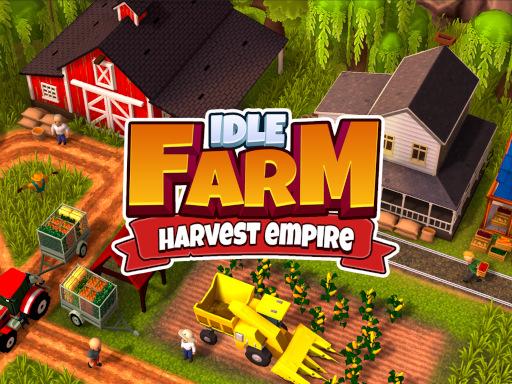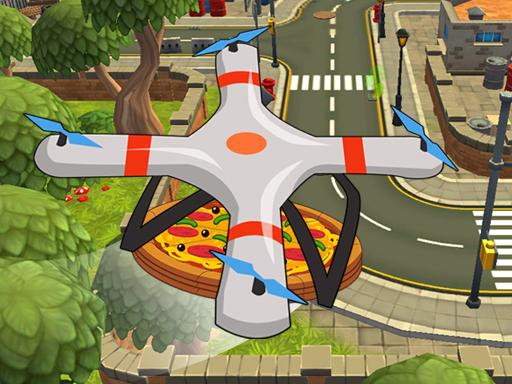Introduction to City Builder
City Builder is a popular genre of simulation games that puts players in the role of urban planners, tasking them with designing, constructing, and managing a thriving metropolis. In these games, players are responsible for the growth of their cities, from the initial stages of laying down roads to ensuring the well-being of its citizens. With engaging mechanics and deep strategic elements, City Builder games offer a captivating experience for those who love strategy, creativity, and management.
In this article, we will introduce the core features of City Builder games, explain how to play, and offer strategies for success. Whether you’re a new player or a seasoned builder, this guide will help you maximize your gameplay and create a city that thrives.
What is City Builder?
A City Builder game is a type of simulation game that challenges players to construct and manage a city or urban environment. The goal is to develop the city from a small settlement into a sprawling metropolis by making decisions about the construction of infrastructure, residential and commercial areas, utilities, and public services.
Players must balance various factors such as budget, resources, population happiness, and environmental impact while ensuring the city grows efficiently. As the game progresses, players may face challenges like natural disasters, economic downturns, and the demands of a growing population.
Key Features of City Builder Games
- City Planning and Design
- Players are responsible for designing their cities, which involves zoning areas for residential, commercial, and industrial use, laying out roads, building infrastructure, and optimizing the use of space.
- Resource Management
- A key element of the game is managing resources, including money, building materials, energy, and water. Players must ensure that their city has enough resources to grow without running into financial trouble or environmental crises.
- Population Growth and Satisfaction
- Attracting citizens to the city is crucial. Players must keep the population happy by providing essential services like healthcare, education, and public safety, while also addressing their needs for leisure, employment, and a good living environment.
- Economic and Environmental Challenges
- The game often features economic challenges such as balancing the city budget, managing taxes, and creating jobs. Environmental considerations, such as pollution and waste management, must also be handled to ensure the long-term sustainability of the city.
- Upgrades and Unlocks
- As players progress, they can unlock new technologies, buildings, and services, enabling them to expand their cities and overcome new challenges.
- Natural Disasters and Crisis Management
- Some City Builder games include unpredictable events like floods, earthquakes, and fires, which test the player’s ability to manage and recover from disasters.
How to Play City Builder
1. Start Small and Plan Ahead
- When beginning a new city, it’s important to start small and expand gradually. Lay down basic infrastructure such as roads, electricity, and water supplies before developing residential zones. Early planning will ensure a smooth and efficient city growth.
2. Balance Resources
- Efficient resource management is essential. Ensure that you have enough funds, energy, and water for your growing population. Try to avoid overspending on large projects early on; instead, focus on optimizing existing infrastructure.
3. Create Zoning Areas
- Divide your city into different zones for residential, commercial, and industrial use. Be mindful of how each area affects others. For example, industrial zones should be placed away from residential areas to prevent pollution from affecting the health of your citizens.
4. Provide Essential Services
- Build key services such as schools, hospitals, police stations, and fire departments. These services are vital for keeping your population happy and maintaining the city’s stability. As the city grows, you’ll need to expand these services to meet the increasing demands.
5. Monitor Population Growth
- Keep an eye on the population’s happiness and needs. High demand for housing and jobs can lead to rapid population growth, but if you don’t provide enough resources or services, you might face unrest or even a decline in population.
6. Expand and Upgrade
- As your city grows, you can unlock new technologies, build more complex structures, and diversify the economy. Make sure to upgrade infrastructure to accommodate growth, such as expanding public transport systems or upgrading power plants.
7. Handle Crises Efficiently
- Prepare for unexpected events, like natural disasters or economic crashes. Have emergency services ready to respond quickly to crises, and make sure your city has a disaster recovery plan in place.
Tips for Success in City Builder Games
- Optimize Land Use
- Don’t waste space. Design efficient layouts that allow for smooth traffic flow and easy access to essential services. Avoid overcrowding areas with too many high-rise buildings, as this can lead to traffic problems and decreased satisfaction.
- Prioritize Public Services
- Invest in public services early on, especially healthcare, education, and safety. These not only improve quality of life for your citizens but also prevent crime and health problems that could cripple your city.
- Keep an Eye on the Budget
- The success of your city is tied to financial stability. Keep the city budget balanced, avoid excessive borrowing, and ensure your taxes are set at a level that keeps citizens happy without draining the economy.
- Plan for Growth
- Always plan ahead for future growth. Anticipate the need for additional housing, infrastructure, and services before the demand becomes critical. Expanding too quickly without adequate resources can lead to chaos.
- Diversify the Economy
- Having a diverse economy is key. Balance industrial zones, commercial areas, and leisure activities to ensure your city’s economy is resilient to changes in market conditions.
- Monitor Traffic and Pollution
- Traffic congestion and pollution can significantly reduce the quality of life in your city. Build public transport options, such as buses and trains, and place industrial zones far from residential areas to minimize pollution.
Conclusion
City Builder games offer a deep and rewarding experience for players who enjoy strategy, creativity, and management. Whether you’re constructing a peaceful town or a bustling metropolis, there’s always a new challenge around the corner. By mastering resource management, balancing the needs of your population, and strategically planning your city’s growth, you can create a successful and thriving city.
Remember to keep your citizens happy, manage resources wisely, and always plan ahead. If you love simulations that combine strategy and creativity, City Builder games are the perfect way to test your planning skills and create the city of your dreams.
Instructions
– Use WASD or Arrow Keys to move




















